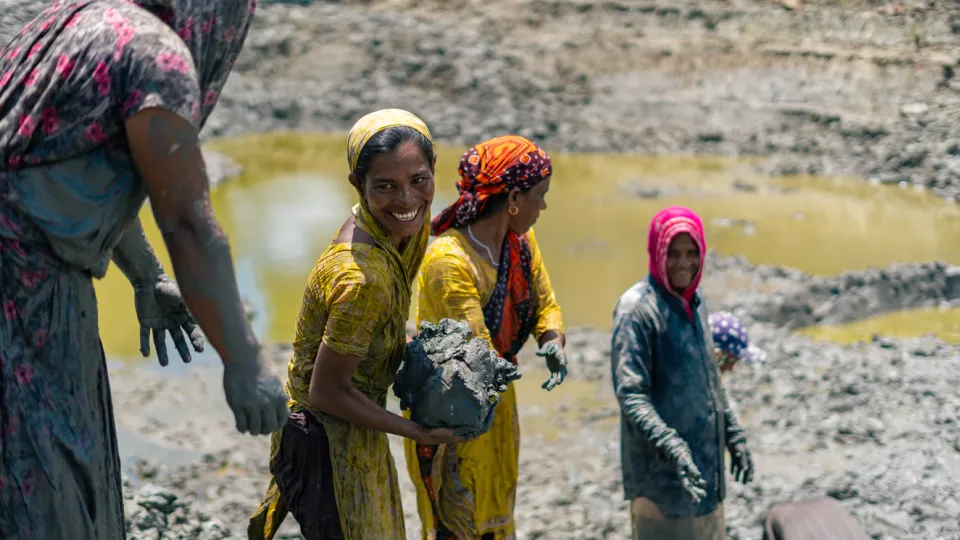
Layered Response in Bangladesh: Cyclone Remal
Blog by Danielle Turner and Marwa Tasnim on Cyclone Remal response in Bangladesh where Start Ready, Start Fund Anticipation, and Start Fund Rapid Response were all activated.

Blog by Danielle Turner and Marwa Tasnim on Cyclone Remal response in Bangladesh where Start Ready, Start Fund Anticipation, and Start Fund Rapid Response were all activated.
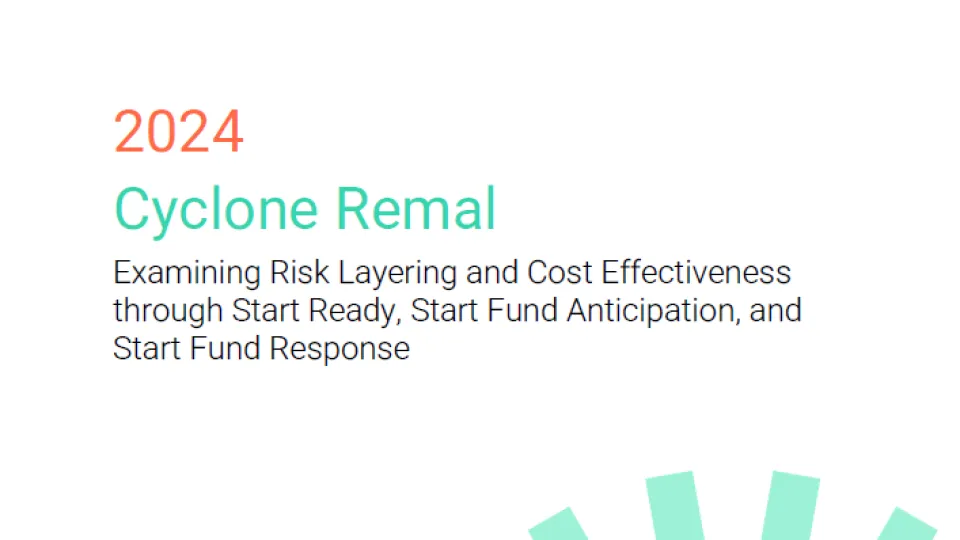
This study highlights the effectiveness of early interventions over reactive disaster relief.
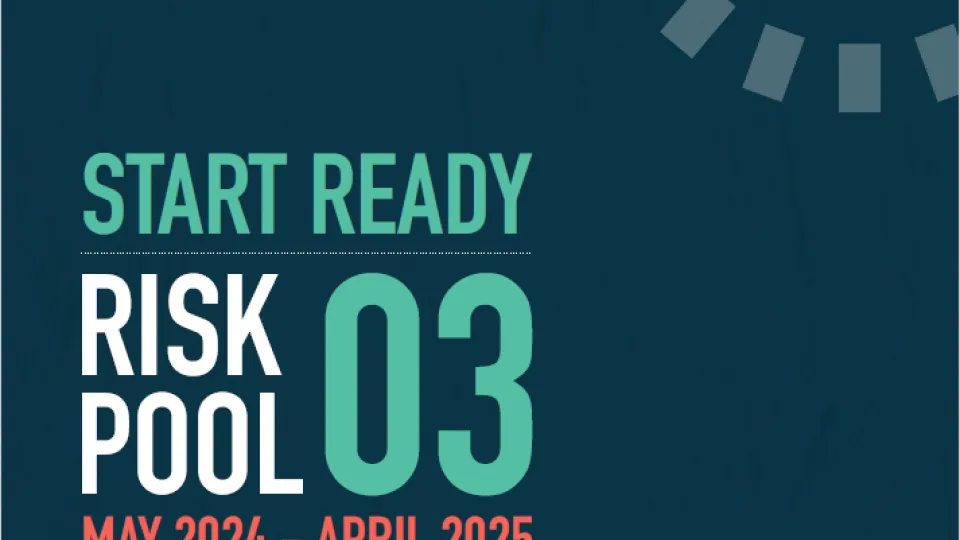
This report summarizes the structure of Start Ready Risk Pool 3, running from May 2024 to April 2025.
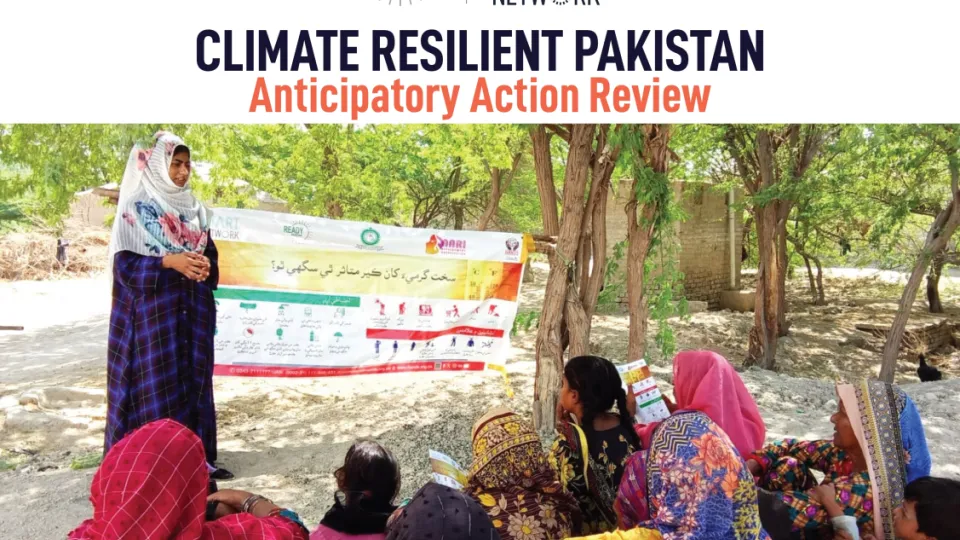
This publication explores the urgent climate challenges faced by Pakistan, one of the world's most vulnerable countries to climate impacts.
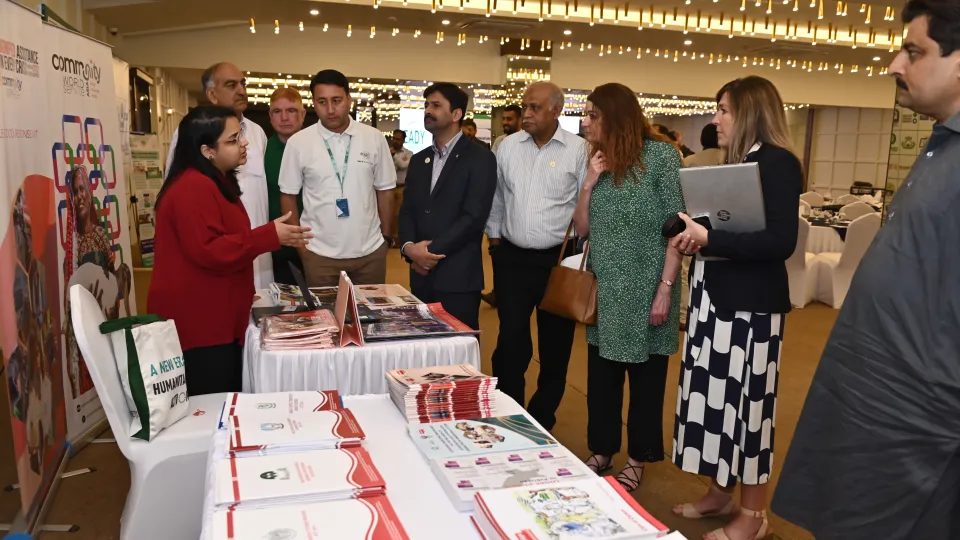
Held on July 25-26, 2024, in Islamabad, the Assembly gathered 98 participants from various national and international organizations to review and strategize READY Pakistan’s evolution.
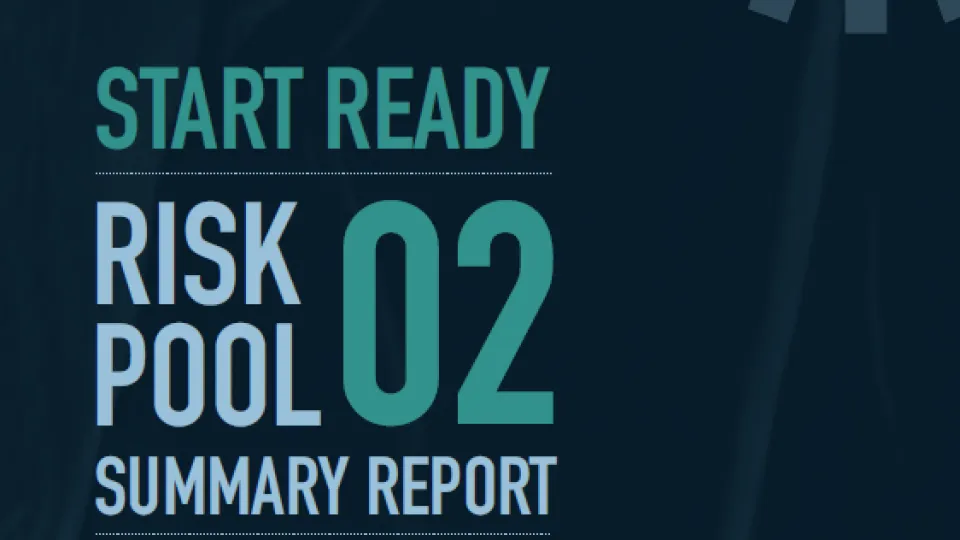
In the second Start Ready risk pool, Start Network provided protection to 685,619 people in 7 countries, from 11 climate risks.
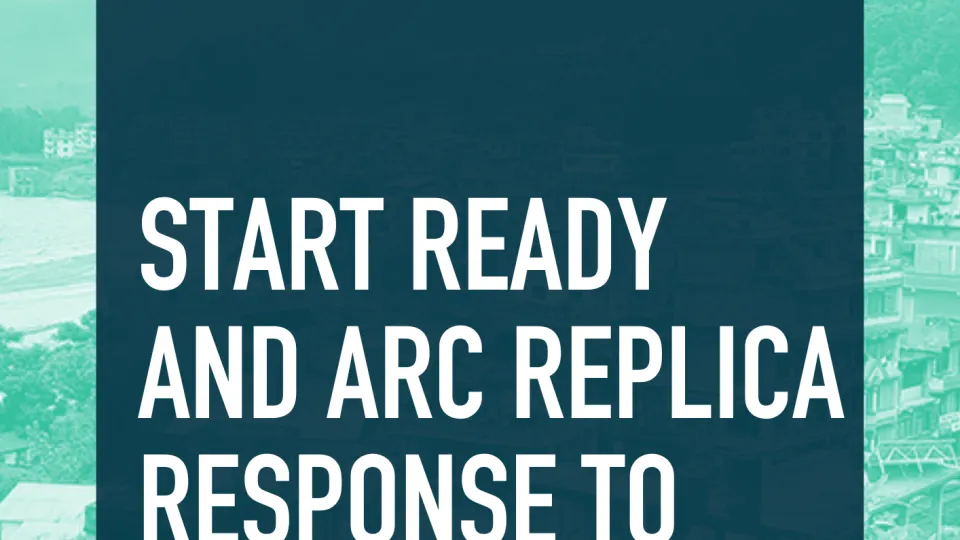
In late 2022, the Famine Review Committee identified a risk of famine for several population groups in the Bay region of Somalia. The African Risk Capacity (ARC) Replica funds were consequently released in March 2023 when pre-agreed thresholds indicated rainfall deficits, drought, and worsening food insecurity. In total, 3.38 million USD was released from ARC Replica, and was supplemented with 891,800 USD from Start Ready.
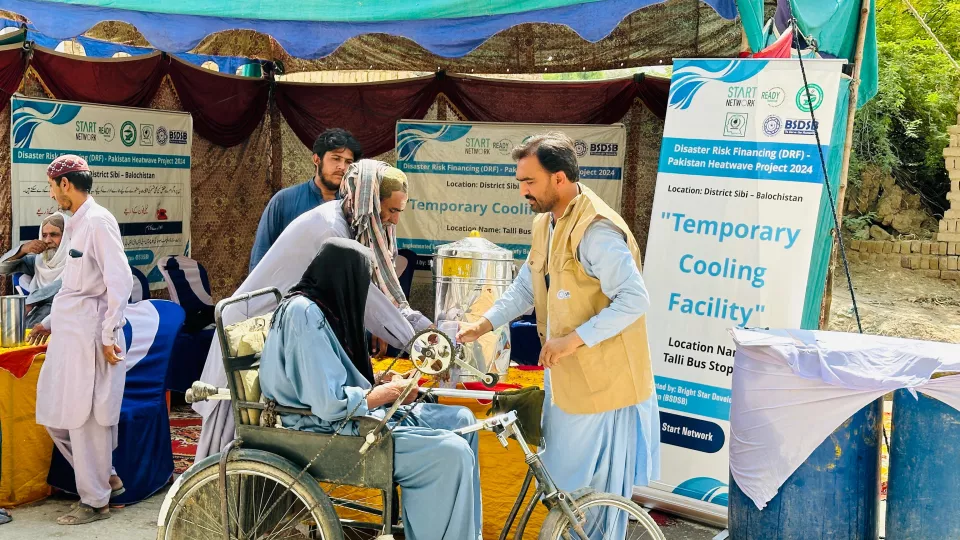
It was an eventful start, with 6 heatwave activations in Pakistan within the first two days of the risk pool going live.
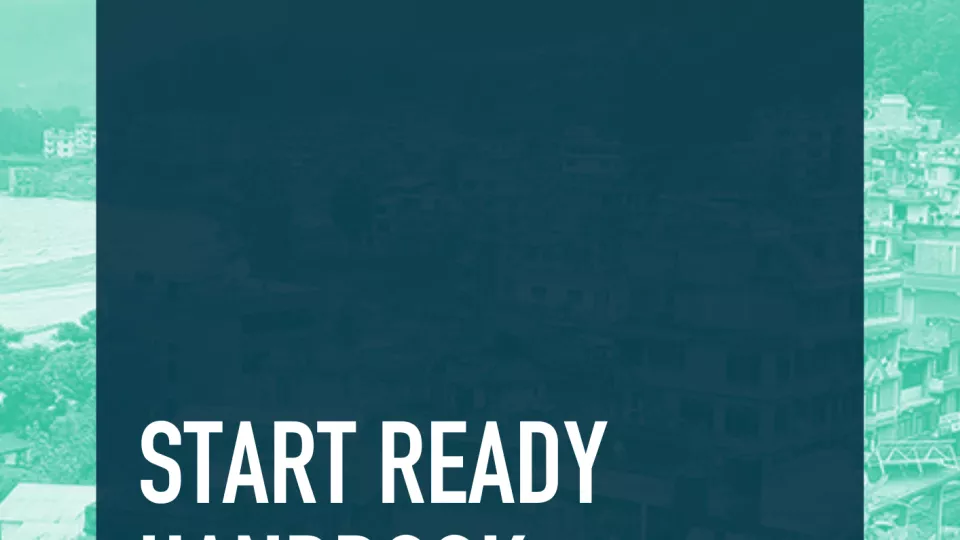
This handbook is aimed at Start Network members (and their partners), the Start Ready Committee and Start Network staff (including Start Programmes staff hosted by Grant Custodian(s)). Other stakeholders such as donors and partners can also access it for information purposes. The handbook is regularly reviewed by the Start Ready team who work with various Start Network teams to update the handbook as needed.
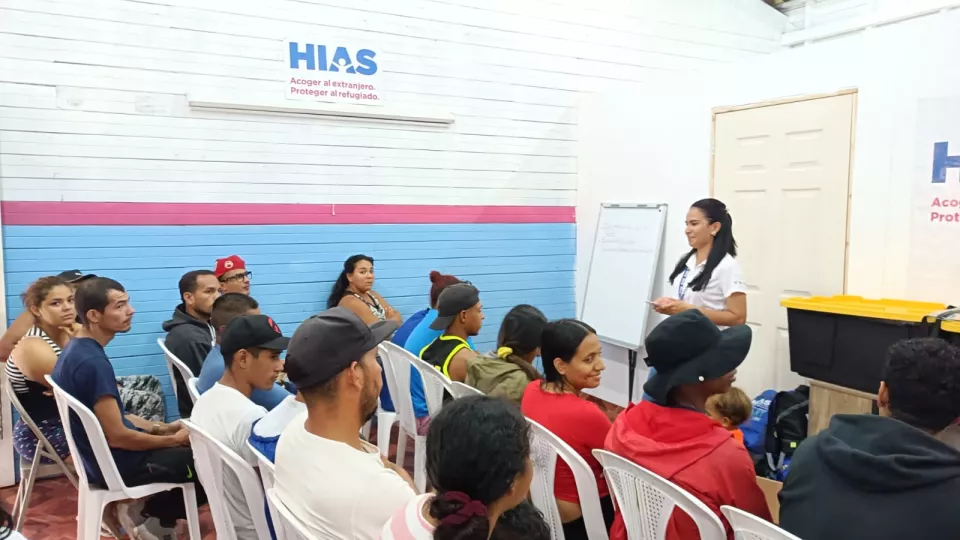
In humanitarian and disaster response efforts, LGBTQIA+ individuals are among the most vulnerable yet least visible